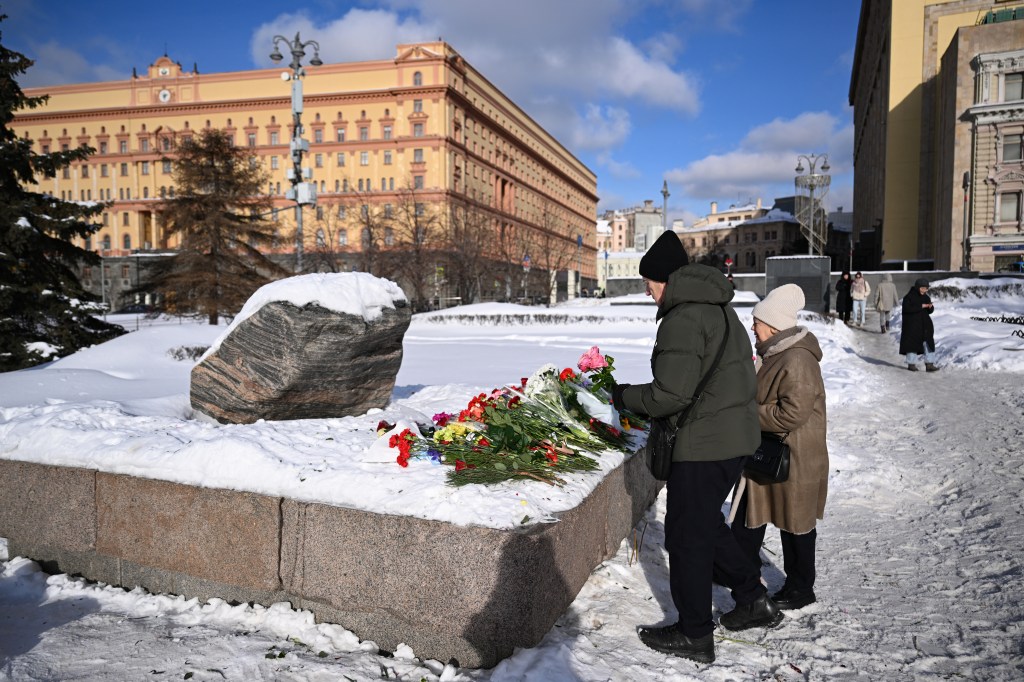After the sudden death of opposition leader Alexey Navalny in a Russian prison on February 16, Moscow has escalated its crackdown on press freedom.
➡️ This week, Russia banned freedom of expression group Article 19 and news organization Radio Free Europe/Radio Liberty (RFE/RL) as “undesirable,” a designation banning them from operating in Russia, and anyone who participates in them or works to organize their activities faces prison and fines. The classification also makes it a crime to distribute the outlet’s content or donate to it from inside or outside Russia.
These designations only serve to underscore how much Russian authorities fear being held to account for their repeated and long-standing violations of press freedom. Since 2021, Russian authorities have labeled more than a dozen media organizations “undesirable,” and RFE/RL in particular has been targeted by the Russian government for years. On February 20, Russian courts upheld the arrest of RFE/RL editor and dual U.S. and Russian citizen Alsu Kurmasheva—alongside that of American journalist Evan Gershkovich—and extended both of their detentions.
➡️ On February 16 and 17, at least four journalists were briefly detained while reporting on memorials in Navalny’s honor after his death in custody. Additionally on February 21, the latest edition of the independent news weekly Sobesednik, featuring Navalny on the front page, was withdrawn from distribution sites in Moscow.
While these arrests are not surprising, given the Russian authorities’ long history of harassing and detaining journalists covering pro-Navalny demonstrations, CPJ urged Russia to allow journalists to report on tributes to Navalny and freely cover events of public interest without fear of being detained.
- CPJ warns Assange extradition would be a blow to press freedom
- CPJ and partners call on Slovakia to ensure justice for the murder of journalist Ján Kuciak
- French journalist Vanessa Dougnac leaves India after journalism permit revoked
- Turkey puts five journalists under house arrest or judicial control; three journalists found guilty of aiding terrorist organization “without being a member”
- CPJ calls for Israel to halt war censorship plans
- Nepali journalists Aishwarya Kunwar, Puskar Bhatt arrested under cybercrime law
- Chinese director Chen Pinlin arrested over White Paper protest documentary
- Guinea-Bissau president threatens media, 30 armed men raid two state broadcasters
- Cameroonian journalist Bruno Bidjang detained for alleged “rebellion”
Spotlight
Myanmar journalist Myat Thu Tan was shot and killed in military custody on January 31 in Myanmar’s western Rakhine State, according to news reports. His body was found along with six other political detainees buried in a military bomb shelter, after it was overrun on February 5, by the insurgent Arakan Army, which is fighting military forces in the area. His body, along with the others, showed signs of torture.
🗯️ “A culture of impunity has taken deep root in Myanmar since the 2021 democracy-suspending coup,” said Shawn Crispin, CPJ’s senior Southeast Asia representative. “The junta must stop killing, and start protecting, journalists.”
🔴 Myanmar ranked 9th on CPJ’s latest Global Impunity Index, an annual global ranking of countries where killers of journalists habitually get away with murder. The nation also is the world’s second-worst jailer of journalists, according to CPJ’s 2023 prison census.
What we are reading
- Fewer journalists killed in Latin America in 2023, but experts fear creation of zones of silence — Silvia Higuera, LatAm Journalism Review by the Knight Center
- New data: More than 20 percent of the world’s governments engage in transnational repression — Freedom House
- Climate and environmental journalism under fire: Threats to free and independent coverage of climate change and environmental degradation — Barbara Trionfi, International Press Institute
- A global rise in government-led fact-checking initiatives cause concern, worries of misuse — Elias Meseret, Poynter Institute
- Avoiding the disinformation trap — Joel Simon, The New Yorker
- The plight of journalists in Gaza — Financial Times editorial board
